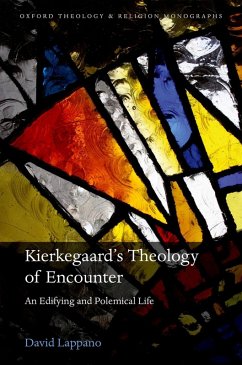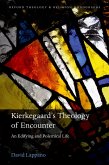Kierkegaard's Theology of Encounter provides a theoretical framework that brings the unity of Kierkegaard's 'middle period' into relief. David Lappano analyses Kierkegaard's writings between 1846 and 1852 when the socially constructive dimension of his thought comes to prominence, involving two dialectical aspects of religiousness identified by Kierkegaard: they are the edifying and the polemical. How these come together and get worked out in the lives of individuals form the basis of what can be called a Kierkegaardian 'social praxis'. Lappano argues that the tension between the edifying and the polemical can be coherently maintained in a communicative life that is also characteristic of a militant faith. This militant faith and life is presented as a critical guard against absolutisms, fundamentalisms, and intellectual aloofness; but the 'militant' individual is also utterly dependent, in need of edification and critique, and therefore chooses the risk of encountering others, seeking relationships out of a commitment to the development of people and communities in co-operation. Therefore, not only does this dialectic provide readers with an important theoretical framework for understanding Kierkegaard's 'middle period', it is also a valuable resource for a constructive analysis of active social living suitable for theology in the twenty-first century.
Dieser Download kann aus rechtlichen Gründen nur mit Rechnungsadresse in A, B, BG, CY, CZ, D, DK, EW, E, FIN, F, GR, HR, H, IRL, I, LT, L, LR, M, NL, PL, P, R, S, SLO, SK ausgeliefert werden.









